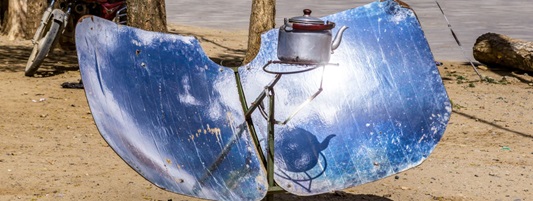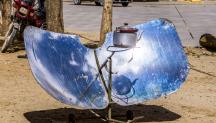Background
Access to clean cooking is a pressing human development challenge with 2.4 billion people still lacking access in 2020. Between 2010 and 2020, access increased by 12% – however, this is largely insufficient. Efforts towards clean cooking access remain inadequate, and the COVID-19 pandemic exacerbated this challenge. If the current trajectory continues, there is a likelihood that the Sustainable Development Goal (SDG) 7 target of universal access to affordable, reliable and modern energy services will not be met by 2030.
Those without access to clean cooking rely on traditional fuels such as firewood, kerosene and coal. These fuels have significant impacts on health and well-being, particularly causing exposure to household air pollution which is associated with various illnesses and was responsible for 3.2 million deaths in 2019. Lack of clean cooking access is unevenly distributed with sub-Saharan Africa and developing Asia disproportionately affected, whilst women and children bear the brunt of impacts. Additionally, lack of access to clean cooking poses environmental problems.
There is an urgent need for accelerated deployment of renewable cooking solutions. Over the next decades, as outlined in IRENA’s World Energy Transitions Outlook, the world will need to accelerate its shift to renewable cooking solutions aligned with the 2030 Agenda for Sustainable Development and climate goals. This will involve both cleaner bioenergy solutions (including biogas and bioethanol) and renewables-based electric cooking. These solutions are becoming increasingly viable – however, there are significant barriers that need to be overcome by various stakeholders and IRENA continues to facilitate engagements on how to address these barriers.
Beyond Food Clean Cooking Platform
To facilitate increased access to clean cooking, and thus improved health and well-being, gender equality and climate action, IRENA and the government of the United Arab Emirates jointly launched the Beyond Food Clean Cooking Platform (BFCCP) in 2022. BFCCP aims to create and enhance stimulating frameworks with a focus on three pillars that target barriers linked to the scaling-up of enterprises, gender inequality, and national commitments.
The first pillar, “Promoting Twinning Support for Renewable Energy Enterprise Development”, facilitates the mentorship of small and medium renewable energy enterprises (especially women-led and clean cooking enterprises) on business, financing and technical matters from larger renewable energy enterprises within a South-South context. Under the second Pillar, “Promoting Electrification of Cooking”, the potential of electric cooking will be globally assessed to identify the opportunities for scaling up the adoption of the solution. The third pillar, “Supporting Women Renewable Energy Entrepreneurs”, focuses on offering empowering skills and mentorship to women entrepreneurs within and beyond Southern Africa, especially those providing clean cooking solutions.
Past Events
-
5 April 2023-10 May 2023 Virtual Knowledge Exchange Series
Advancing renewables-based clean cooking solutions











